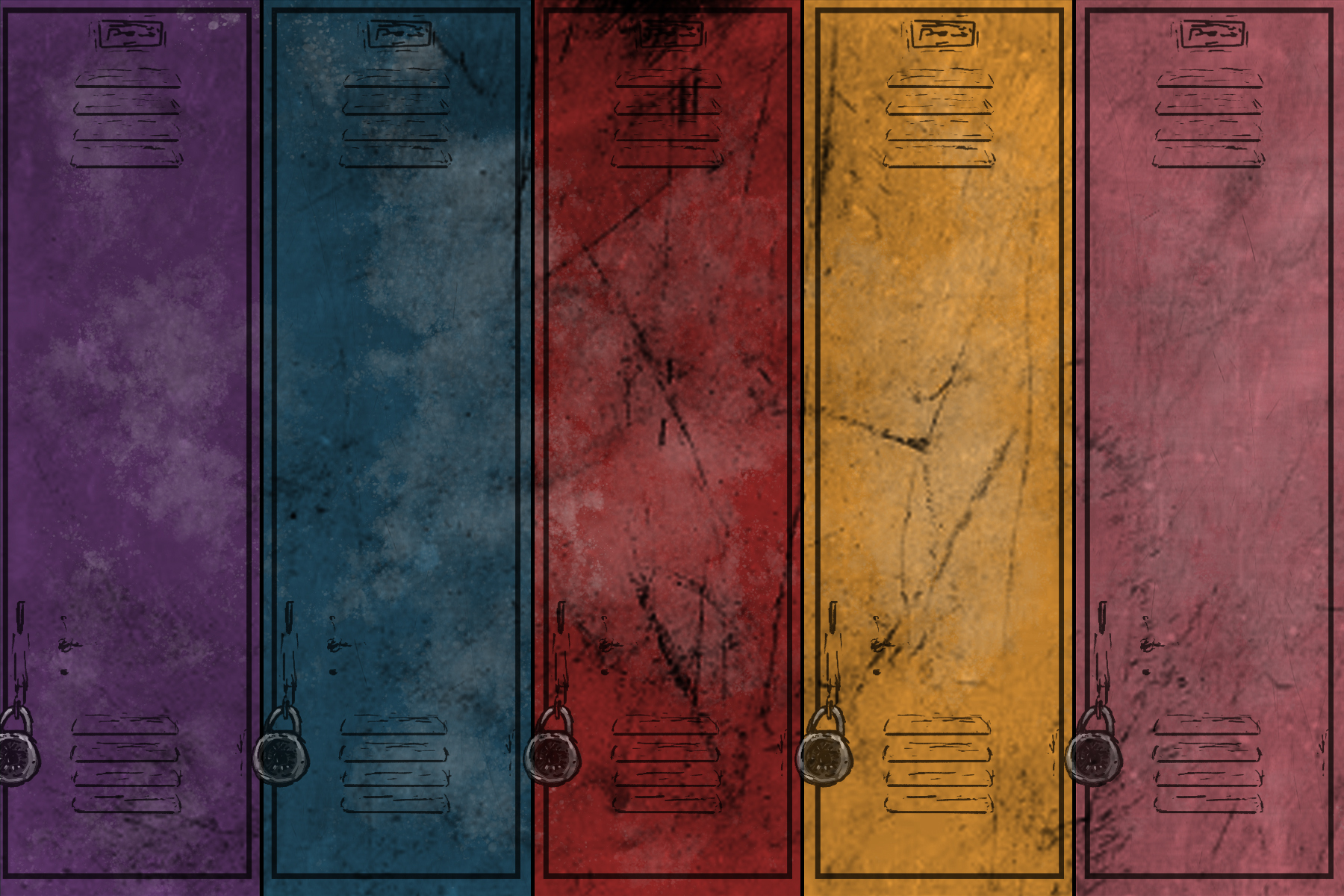Netflix’s new teen drama “Grand Army” at first seems inclusive, shedding light on the world of NYC high schoolers dealing with the “normalcy” of bomb threats, rape, sexual identity and racism. But its attempts at diversity lose impact once it is revealed that behind the scenes, racism is not only played out on the screen, but also in the writer’s room.
The show’s creator is teacher, playwright and director Katie Cappiello, who adapted material from her recognized play, “Slut,” first written and directed in 2013. However, the Netflix production expands to focus on five main characters. It’s about teenagers that carry invisible burdens, responsibilities, expectations and shame as the nine episodes evolve into deeper tribulations.
There’s Joey (Odessa A’zion), a dancer and feminist who, at times, is oblivious to her own flaws. Dominique (Odley Jean) is hard-working but struggles to keep up with her family’s financial instability. There’s Sid (Amir Bageria), who’s on the swim team but feels conflicted with sharing his sexuality. Jayson (Maliq Johnson) plays the saxophone, but when his friend has some innocent fun during the lockdown, “fun” quickly escalates to expulsion and mirrors the school-to-prison pipeline. Finally, there’s the freshman Leila (Amalia Yoon), a Chinese-born daughter of white Jewish parents who struggles with belonging when she is bullied by Chinese students in her class.
https://www.youtube.com/watch?v=Fb30tUGqaCk&feature=youtu.be
At first, the diverse cast seems to model how Netflix shows should better represent minority narratives — specifically for Gen Z teens — in 2020. But when the trailer dropped in early September, that picture-perfect example diminished when a former writer for the show expressed her grievances over Twitter.
Screenwriter and playwright Ming Pieffer first tweeted a quote from the trailer itself, which began to gain widespread attention when she alleged, “Me and the 3 writers of color who worked on the show quit due to racist exploitation and abuse. The show runner and creator went full Karen and called Netflix hr on the Black writer in the room for getting a haircut. Yes you read that correctly. Who wants to interview us?” That supposed Karen is, of course, Cappiello.
Pieffer went on to clarify that there were two other writers of color besides herself, and she elaborated on the alleged racism she experienced while working for Cappiello. Specifically, she expressed her frustration with the language used in the trailer.
Me and the 3 writers of color who worked on the show quit due to racist exploitation and abuse. The show runner and creator went full Karen and called Netflix hr on the Black writer in the room for getting a haircut. Yes you read that correctly. Who wants to interview us? https://t.co/tBEbk8JRqm
— Ming Peiffer (@mingpdynasty) September 2, 2020
It is crazy. Netflix was fully aware of it all and did nothing except hire more writers of color to lend their names to the show. Then had the audacity to reach out 2 years later in anticipation of the release to “hear our concerns” bih we told you what happened 2 years ago!
— Ming Peiffer (@mingpdynasty) September 2, 2020
Pieffer responded to one comment about the trailer that asked, “why does the movie gotta be depressing time every time y’all get a black girl lead???”
Because the show runner wouldn’t listen to the 3 writers of color, of which I am one, including the Black writer who kept asking to not make her storyline poverty porn. When we tried to change the story we were psychologically abused and all quit.
— Ming Peiffer (@mingpdynasty) September 2, 2020
Additionally, another celebrated playwright, Jerry Harris, acclaimed for “Slave Play,” responded to Pieffer’s thread on Twitter a few days later. He wrote, “Just revisiting to say I’m still disgusted by this show runner.”
Peiffer responded, “It goes so deep…. I’ve heard even more from her former students and colleagues since tweeting this. Truly deranged individual who was elevated and enabled.”
While many outlets have jumped at the opportunity to interview Peiffer once her thread circulated Twitter, nothing has been released and Cappiello has yet to make a comment on the allegations.
As for the show itself, the crucial issues it addresses in the post-9/11 era — gun violence, political tensions, modern feminism and BLM protests — is at its best when the actors’ performances are allowed to shine, speaking their characters into reality.
The Black female lead, Dominique — played by Odley Jean, one of Cappiello’s students — has one of the most optimistic storylines, especially compared to characters like Joey, who gets little justice after being sexually assaulted by her best friends. Dom’s perseverance and ability to see the light in any dark situation sustains the entire show.
In addition to keeping up her grades and excelling at basketball, Dom also financially helps her Haitian immigrant mother and family pay the rent, raises her niece and nephews and pursues internships that will aid her in becoming the first of her family to go to college. Jean’s gritty but warm performance is what pushes the show to its explementary unveiling of a truth that many minority adolescents face in America.
But when the viewer takes a step back to realize that this storyline — written to highlight the adversity that Dom battles — is created from the perspective of a white and generally more privileged screenwriter who allegedly stole the story of some of her students, Dom’s voice is no longer amplified, but appropriated. The truth isn’t the same truth if it’s told without the help of more authentic — not only diverse — perspectives.
Peiffer claimed that the writers that quit were replaced by other people of color, but it doesn’t detract from the even bigger issue of white people telling stories about BIPOC, especially when racism and bias has yet to be confronted by their white creators.
Stories of diverse teens facing the identity, complexity and adversity of a biased society are important and should be explored in film, but when those stories are buried in the micro and macro aggressions the story itself addresses, the power is diminished.
On the other hand, the most powerful scene of “Grand Army” is the last, when Jayson, who replaced his expelled friend’s spot in the “school-to-prison-pipeline,” puts tape over his mouth and raises his fist instead of playing his solo, thereby protesting the cruel injustice that has put him in the position. The last shot is completely silent, an extreme contrast to the first episode’s chaotic, loud beginning that continued throughout the adolescents’ lives.
If only breath-taking scenes like these (directed by award-winning Clement Virgo) aligned with the actuality of its creator. Even so, the performances of the actors and actresses should be applauded for their natural compassion when approaching their roles, as their care and depth of understanding below the surface is crucial for a character-dominated show such as “Grand Army.”
A response to the allegations has yet to be seen from Cappiello. If the message of “Grand Army” is meant to be heard through Netflix’s greater effort to include BIPOC creators and narratives, then their writer’s rooms need more transparency.

















